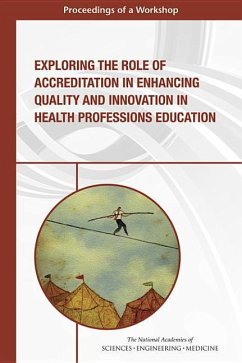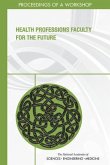The purpose of accreditation is to build a competent health workforce by ensuring the quality of training taking place within those institutions that have met certain criteria. It is the combination of institution or program accreditation with individual licensure?for confirming practitioner competence?that governments and professions use to reassure the public of the capability of its health workforce. Accreditation offers educational quality assurance to students, governments, ministries, and society. Given the rapid changes in society, health, and health care, the National Academies of Sciences, Engineering, and Medicine hosted a workshop in April 2016, aimed to explore global shifts in society, health, health care, and education, and their potential effects on general principles of program accreditation across the continuum of health professional education. Participants explored the effect of societal shifts on new and evolving health professional learning opportunities to best ensure quality education is offered by institutions regardless of the program or delivery platform. This publication summarizes the presentations and discussions from the workshop.








